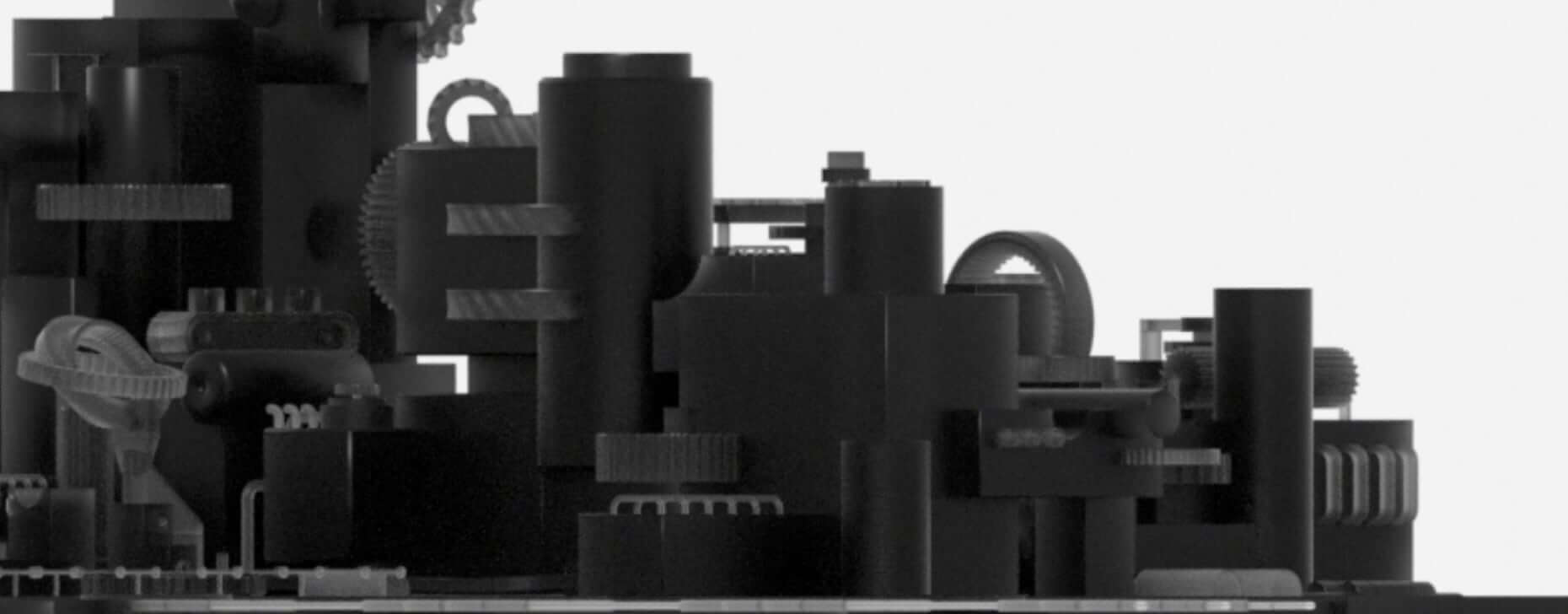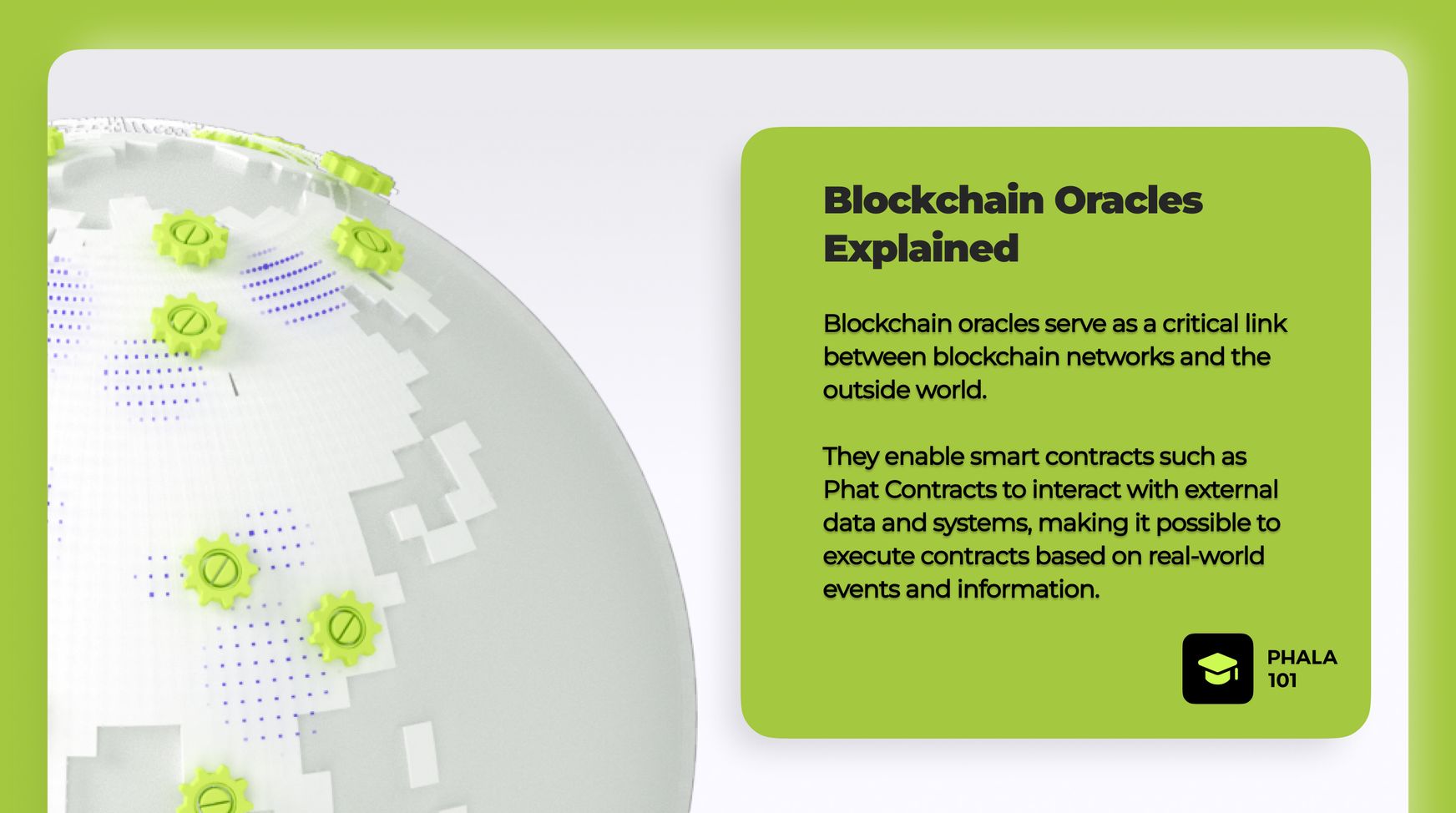
Unraveling the Power of Blockchain Oracles - A Glimpse into Phat Contract Oracles on Phala Network
2024-02-22
Blockchain oracles serve as a critical link between blockchain networks and the outside world. They enable smart contracts to interact with external data and systems, making it possible to execute contracts based on real-world events and information.
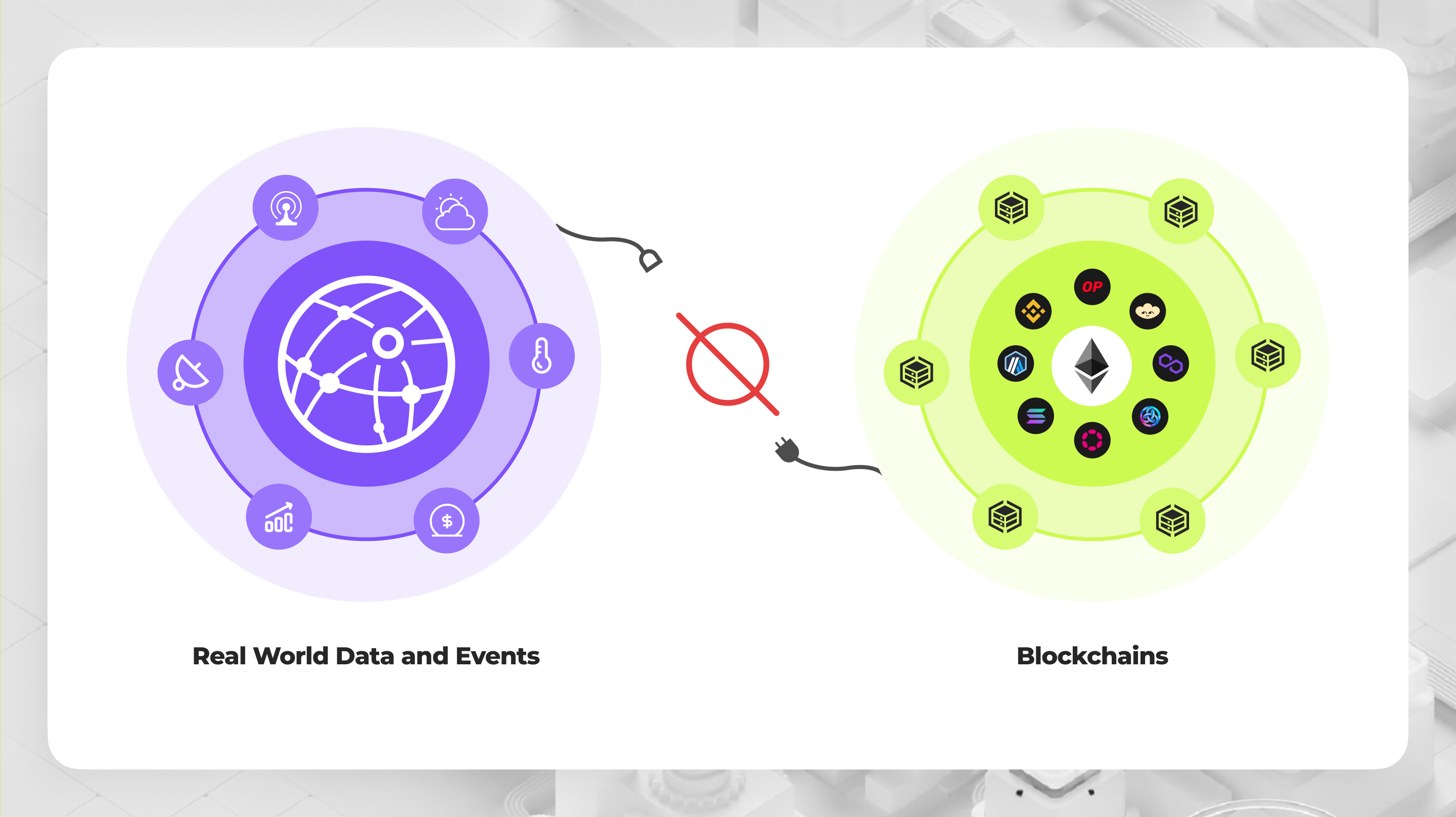
The integration of blockchain technology in sectors like finance, global trade, insurance, and gaming will revolutionize asset management and transactions worth trillions of dollars. Blockchains, smart contracts, and oracles form the foundation of a transparent and controllable web, giving users a clear understanding of how applications work.
Oracles play a vital role in creating a connected and interoperable blockchain ecosystem by providing access to off-chain data and computational resources.
What are Oracles?
In the web3 decentralized landscape, Oracles enable smart contracts to interact with external data sources, legacy systems, and complex computations via API. These networks empower the creation of hybrid smart contracts that blend on-chain code with off-chain data and computational resources. This integration is crucial for dApps that require dynamic interaction with data outside the blockchain.
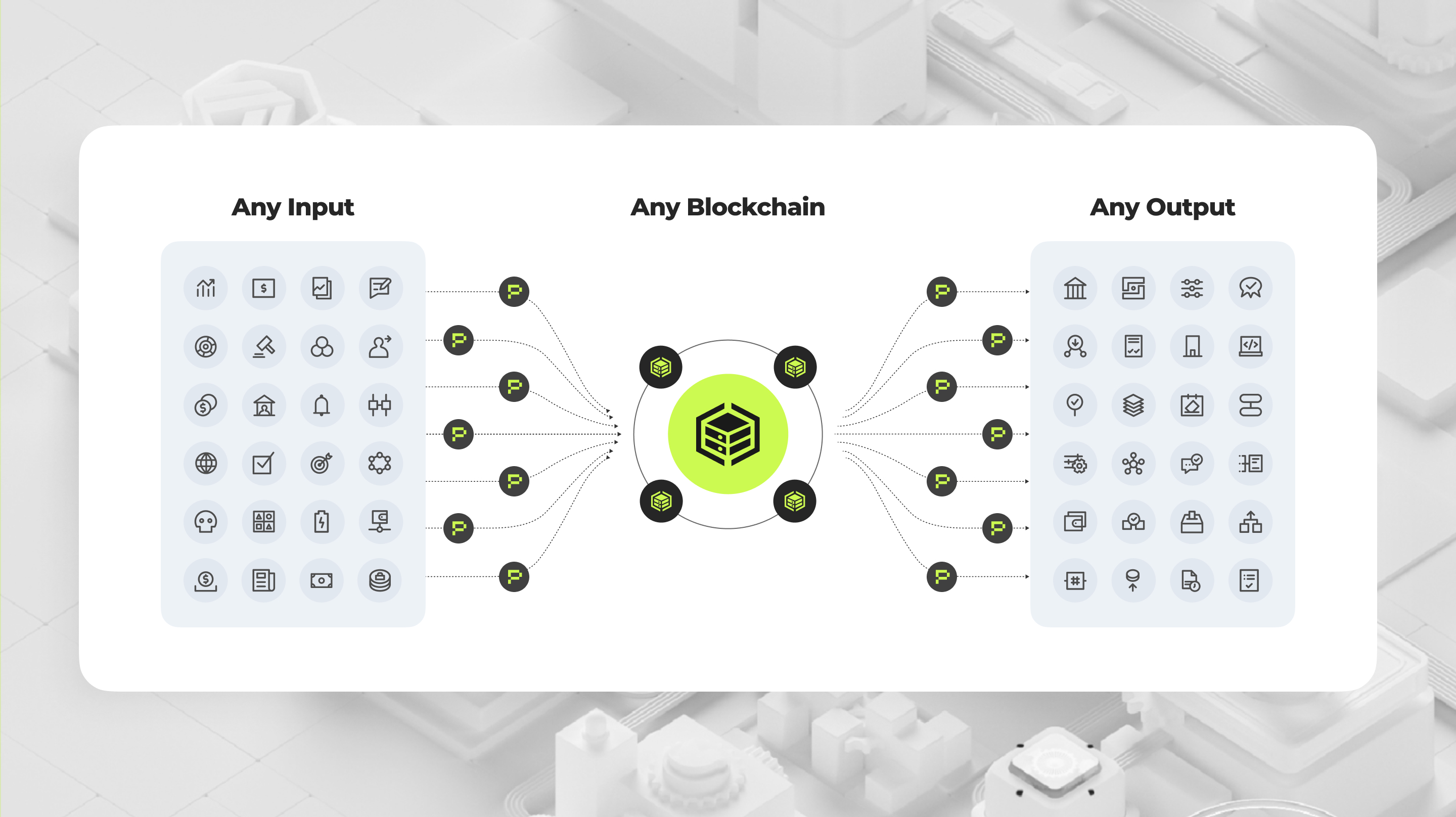
Comparing Centralized, Semi-centralized, and Decentralized Oracles in Blockchain Systems
While discussing centralized, semi-centralized vs decentralized Oracles, it is crucial to note that all three types aim to provide access to external data. However, when it comes to decentralized oracles, there is an important aspect that needs to be taken into consideration: security. Security is the bedrock of decentralized technology, and it is essential to evaluate which type of oracle offers better security measures. By analyzing the various aspects of centralized, semi-centralized, and decentralized oracles, we can gain a deeper understanding of their functionalities and determine which one is more reliable in terms of ensuring data security.
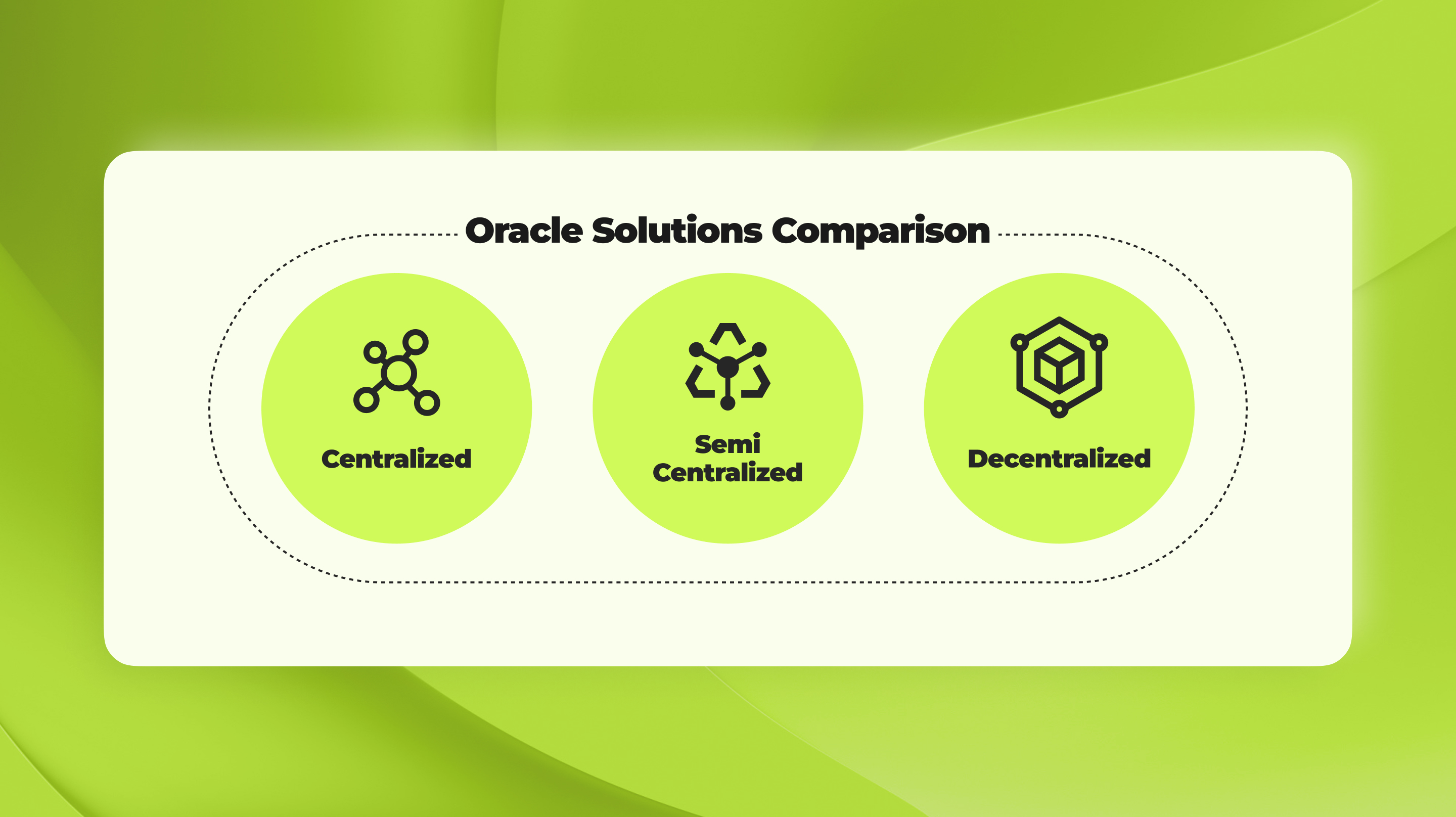
Centralized and Semi-centralized approaches introduce their own challenges and vulnerabilities. Centralized oracles act as a single source of truth for external data, contradicting the trustless nature of blockchain technology. They can also be targets for manipulation or attacks, compromising the security of smart contracts.
While there are several web3 services that are currently attempting to address the gap by utilizing innovative technologies like TSS (Threshold Signature Scheme), which have a semi-centralized nature, it is important to note that these companies may not be completely risk averse. This is primarily because the semi-centralized nature of these Oracles introduces a potential risk of collusion. Therefore, it is crucial for developers using semi-centralized services for their dApps to carefully consider the potential challenges and risks associated with their approach in order to ensure the security and reliability of their systems.
Decentralized Oracles
Decentralized oracles represent a pivotal evolution in the blockchain ecosystem, addressing the critical vulnerabilities associated with centralized oracle systems. Centralized oracles, by relying on a single entity for data delivery, introduce a significant risk of failure, manipulation, and inaccuracies, undermining the foundational principles of decentralization and security inherent to blockchain technology. The "garbage in, garbage out" problem highlights the dire consequences of relying on compromised data, where incorrect inputs can lead to irreversible, erroneous smart contract executions.
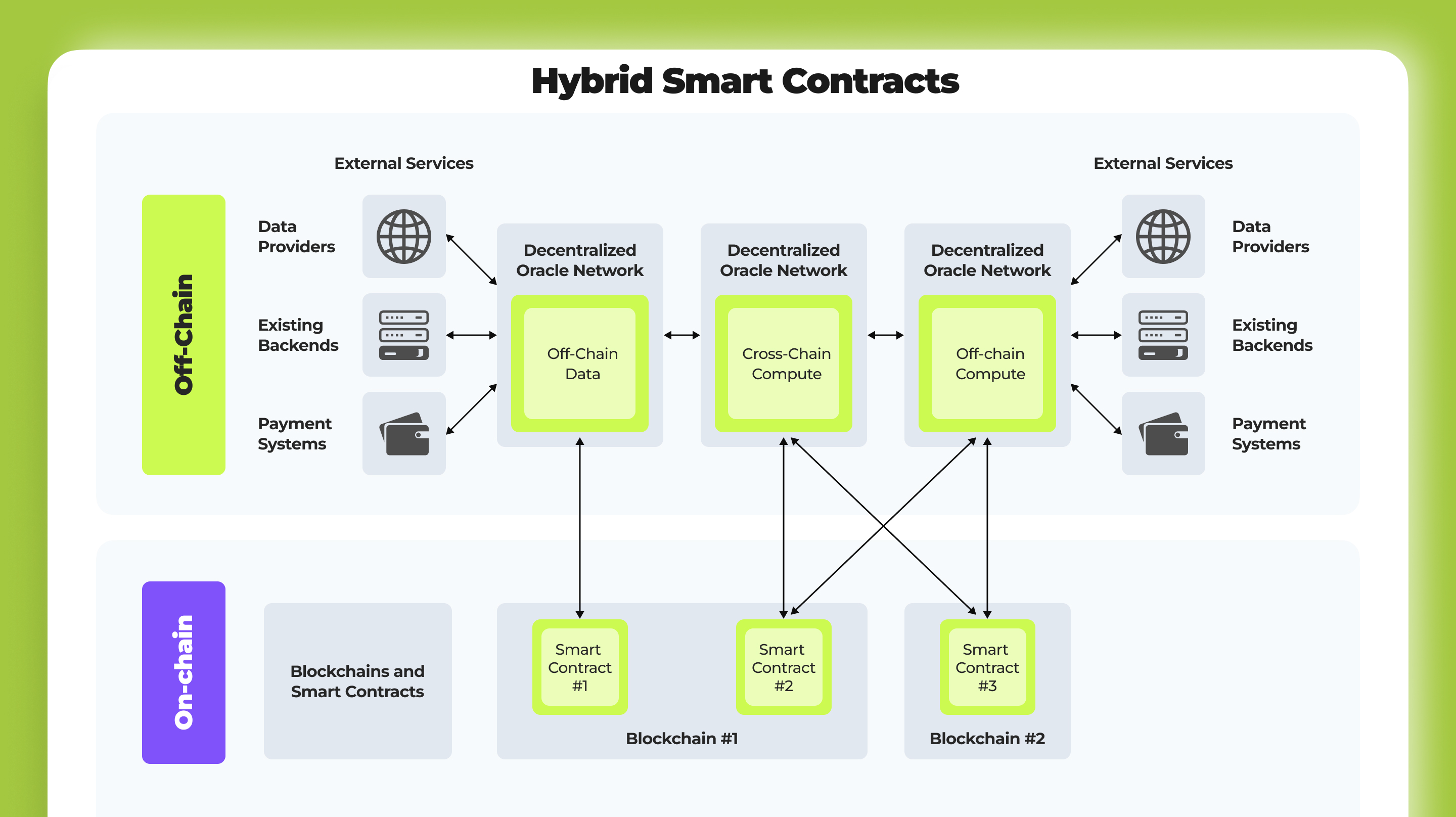
In the previous section, we briefly mentioned the limitations of the TSS technology. However, it is important to highlight the robustness and enhanced security of our tech stack, which incorporates the use of Trusted Execution Environment with SGX. This technology has been extensively analyzed and discussed in a technical article. By implementing this secure technology, we have added an additional layer of protection and mitigated the risk of collusion. The isolation features built into our tech stack further enhance the security measures, ensuring that our system remains highly secure and resistant to potential vulnerabilities.
Phat Contract Oracles: A Decentralized Solution
Phat Contract Oracles, developed on the Phala Network, offer a novel solution to the oracle limitations by leveraging the network's secure, privacy-preserving infrastructure. These oracles maintain the decentralized ethos of blockchain technology while enabling secure and reliable interaction with off-chain data.
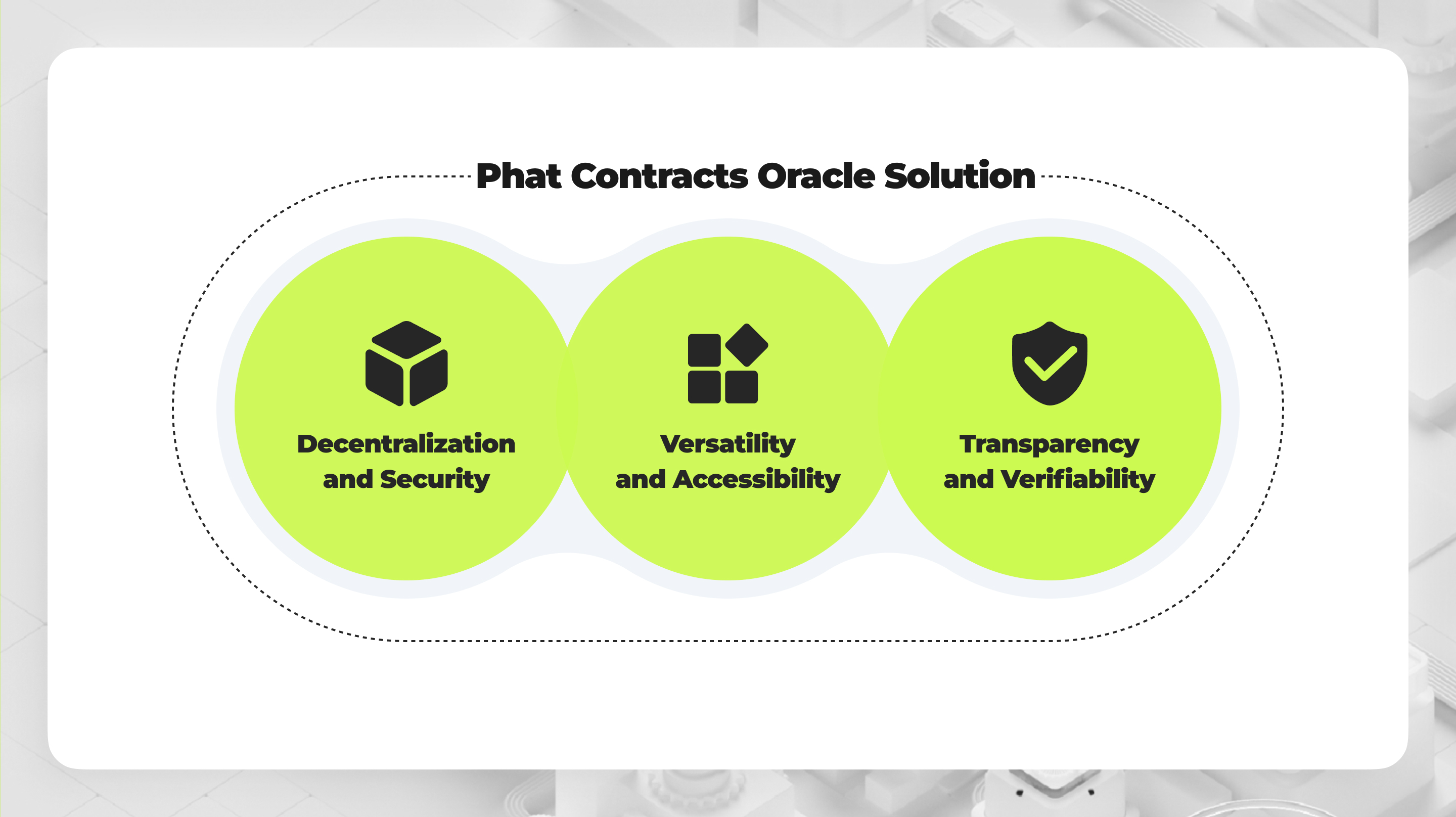
Here's how Phat Contract Oracles address the limitations of centralized and semi-centralized oracles:
- Decentralization and Security: By operating within Phala Network's secure enclave technology in form of Trusted Execution Environment with SGX, Phat Contract Oracles ensure that data is processed in a privacy-preserving, tamper-proof environment. This mitigates the risks associated with centralized points of failure and data manipulation, enhancing the overall security of smart contracts.
- Versatility and Accessibility: Phat Contract Oracles are designed to be versatile, supporting a wide range of data sources and computational tasks. This opens up a plethora of use cases, from DeFi and insurance to gaming and supply chain management, by providing a universal gateway to off-chain resources without compromising on security or decentralization.
- Transparency and Verifiability: The architecture of Phat Contract Oracles allows for transparent and verifiable interaction with off-chain data. Smart contracts can access real-world information with confidence, knowing that the data has been processed securely and accurately, ensuring that agreements execute as expected.
Phat Contract Oracles help unlock world of personalized web3 use cases. These oracles have the power to completely transform the way developers approach their platforms. By seamlessly integrating Phat Contract Oracles into their dApps, developers gain the ability to access and leverage external data in their decentralized applications. This opens up a world of possibilities, allowing developers to automate specific events and create truly dynamic and interactive experiences for their users without manual intervention.
Phat Contract Oracles provide developers with an abstraction layer that simplifies their work and saves them time. By offering ready-to-deploy templates, developers can easily connect any API to their smart contract, without having to start from scratch. This not only accelerates the development process but also ensures that developers have a solid foundation to build upon.
Moreover, Phat Contract Oracles go beyond just Ethereum. They offer wide-ranging support for all EVM-compatible blockchains, including popular ones like Polygon, Arbitrum, Avalanche, Binance Smart Chain, Optimism, and zkSync. With this extensive support, developers have the flexibility to choose the blockchain that best suits their project's needs, without compromising on the ease of integration.
By leveraging Phat Contract Oracles, developers can unlock a world of possibilities and tap into the vast ecosystem of APIs available across different blockchains. This enables them to access a wealth of data and services, empowering them to create more robust and feature-rich smart contracts.
Empowering Developers with Pre-Built Oracles
Phat Contract Oracles not only address the pain points of centralized and semi-centralized oracles but also empower developers with an array of pre-built oracle templates, facilitating rapid development and deployment of decentralized applications.
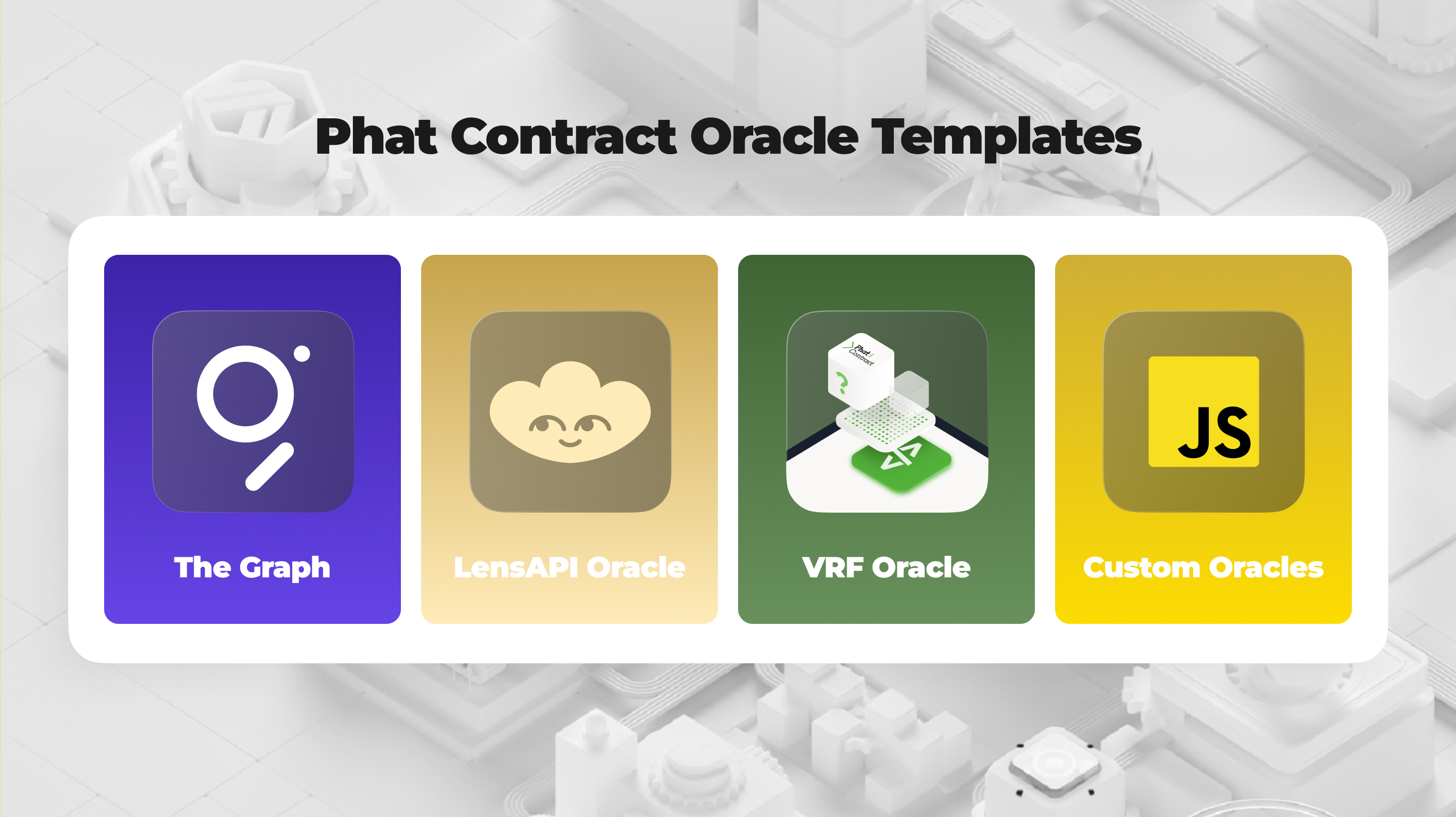
Examples of these templates include:
- The Graph Starter Kit: Enables developers to connect with subgraph endpoints from The Graph, allowing dApps to leverage indexed blockchain data for dynamic content delivery and data-driven decision-making.
- LensAPI Oracle: Offers access to the rich social graph data of the Lens Protocol, ideal for building decentralized social platforms that prioritize user privacy and data sovereignty.
- VRF Oracle: Provides verifiable random functions (VRF) to ensure fairness and unpredictability in gaming, lotteries, and any application requiring cryptographically secure randomness.
- Custom Oracles: Developers looking to tailor oracles to their specific needs can leverage Phat Contract Oracles' flexible framework to create custom solutions. Whether it's integrating IoT data for supply chain transparency, fetching real-time financial market data for DeFi applications, or any other innovative use case, Phat Contract Oracles provide the tools and infrastructure necessary for developers to bring their visions to life.
Conclusion
Blockchain oracles are crucial for connecting blockchain networks with the outside world, enabling smart contracts to interact with external data and systems. The integration of blockchain technology in various sectors will revolutionize asset management and transactions. Decentralized oracles, such as Phat Contract Oracles on the Phala Network, offer enhanced security, versatility, and transparency. They operate within a secure enclave technology, ensuring data privacy and mitigating the risks associated with centralized oracles. Phat Contract Oracles simplify the development process, provide pre-built oracle templates, and support multiple blockchains, empowering developers to create robust and feature-rich smart contracts.
